Coronavirus: Flight taking Britons out of Wuhan is delayed
- Published
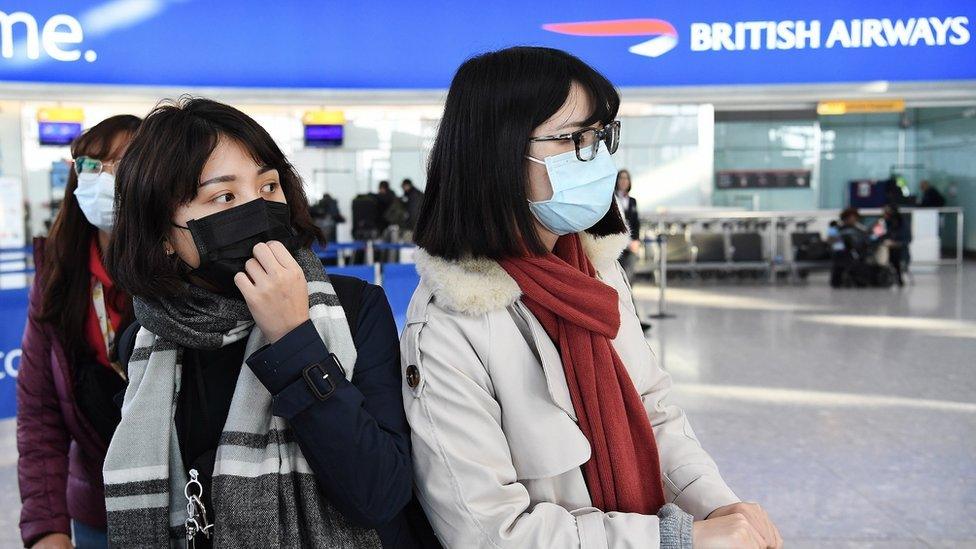
A flight to bring about 200 British nationals back to the UK from coronavirus-hit Wuhan is unable to take off as planned on Thursday.
It is understood relevant permissions from Chinese officials have not yet come through.
Downing Street said it was "working with Chinese authorities so the flight can take off as soon as possible".
The virus has caused at least 170 deaths, spreading to every Chinese region and at least 15 other countries.
The flight from Wuhan, the city where the virus first emerged, had been expected to arrive on Thursday morning.
BBC health editor Hugh Pym said when the passengers do return, they are due to land at RAF Brize Norton in Oxfordshire and be transported to former NHS staff accommodation in the north west of England.
They will be put in "supported isolation" for 14 days with "all necessary medical attention", a Downing Street spokesman said.
A small team of military medics is flying out to Wuhan to accompany passengers on the repatriation flight, the Ministry of Defence said.
In a separate development, British Airways said it had extended its cancellation of services to mainland China until 29 February, following Foreign Office guidance against "all but essential travel" to the country.
Britons waiting for the UK government's repatriation flight said they had been told it had been put back "provisionally" to Friday.
Several UK citizens said they faced a stark choice as family members with Chinese citizenship were not being permitted to travel by local authorities.
Matt Raw lives in Wuhan with his mother, who has Alzheimer's disease, and his wife, who helps care for her.
He told the BBC's Victoria Derbyshire programme that his wife had been prevented from flying so the whole family was staying.
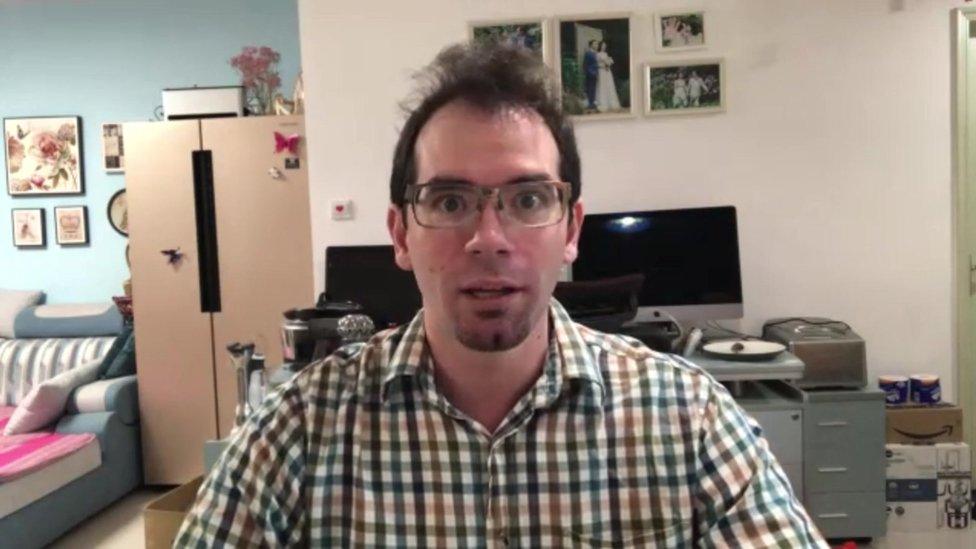
Matt Raw has chosen to stay in Wuhan because his wife has been prevented from travelling
He said they were also concerned about the risks of flying, having seen reports that three Japanese people on evacuation flights were found to have the virus.
Adam Bridgeman said he would stay in Wuhan if his wife and one-month-old son were not allowed to fly with him.
He told BBC Radio 4's Today programme that remaining in Wuhan with a newborn was "a tough situation" as they were "not willing to take the risk" of bringing him to hospital for routine treatment such as vaccinations.
Jeff Siddle, from Northumberland, told the BBC his family faced a "terrible dilemma" after he and his nine-year-old daughter were told they could fly back - but not his Chinese wife, who has a permanent residency visa for the UK.
Jeff Siddle's wife will have to stay behind in Wuhan when he leaves with their daughter
As it stands, Mr Siddle's wife is not travelling back to the UK with him. "I think there's still negotiations to get that changed, but the official line is still that she can't fly," he said.
Chinese health authorities said there were 7,711 confirmed coronavirus cases in the country as of Wednesday night.
The Foreign Office said a number of other countries' flights had also been unable to take off as planned.
'Stress of being locked up'
Hundreds of foreign nationals are being evacuated from Wuhan, with Japan, the US and the EU among those repatriating their citizens.
Some 200 Japanese nationals have been flown from Wuhan and have landed at Tokyo's Haneda airport.
Roughly 200 Americans - including workers from the local US consulate - have also left Wuhan on an evacuation flight.
However, a number of UK citizens in China said local authorities had prevented members of their families from leaving because they held Chinese passports.
Another UK citizen due to be flown out of Wuhan said she was told to leave behind her three-year-old son because he has a Chinese passport.
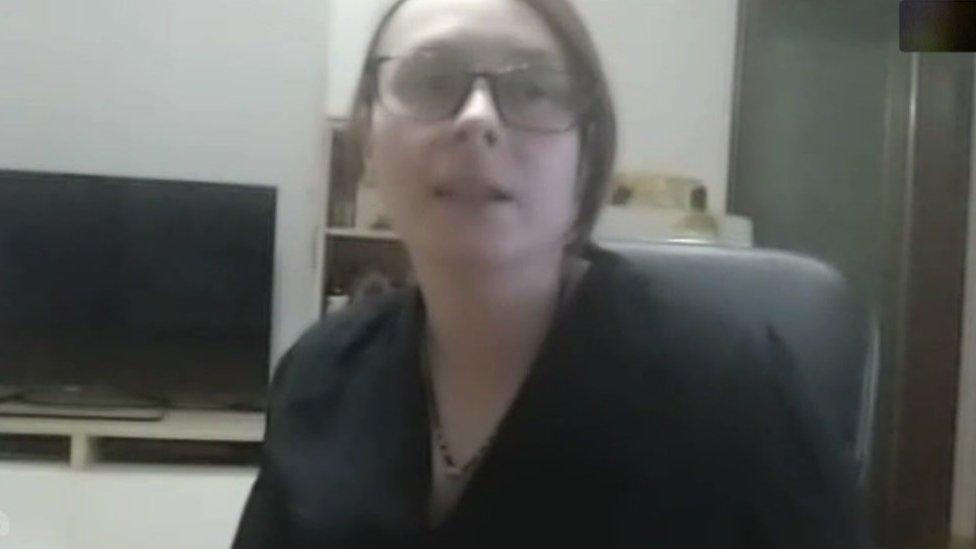
Natalie Francis works as a teacher in Wuhan
Natalie Francis, originally from York, said: "I literally had no words when I got the call."
The Foreign Office said its priority was to keep British nationals and their families together.
The World Health Organization (WHO) will decide later whether the virus constitutes a global health emergency.

How deadly is coronavirus?

It is a basic question, but the answer is elusive.
It is far too simplistic to take the 170 deaths and the 7,711 cases and come up with a death rate of 2%.
We are in the middle of the outbreak and thousands of those patients are still being treated. We don't know if they will live or die, so they can't be used in these calculations.
We also don't know how many mild and undetected cases are out there.
Also, the deadliness of the new virus is only one component of its threat.
Flu kills hundreds of thousands of people each year, not because it is super-deadly, but because it is able to infect so many people.

Professor Sian Griffiths said the "shared response across the world" to the new coronavirus was more effective than during the 2003 SARS outbreak, which she examined in an official inquiry.
She told BBC Breakfast that world governments were "taking everything very seriously in an attempt to contain the virus", deploying greater resources and offering clear public health messages.

Learn more about the new virus

Your questions: You asked, we answered
The story explained: How worried should we be?
Wuhan profiled: The city now in lockdown
In detail: Follow all our coverage here
Epidemic v pandemic: What's the difference?

Have you been affected by any of the issues raised? You can share your experience by emailing haveyoursay@bbc.co.uk, external.
Please include a contact number if you are willing to speak to a BBC journalist. You can also contact us in the following ways:
WhatsApp: +44 7756 165803, external
Send pictures/video to yourpics@bbc.co.uk, external
Tweet: @BBC_HaveYourSay, external
Please read our terms & conditions and privacy policy
- Published29 January 2020
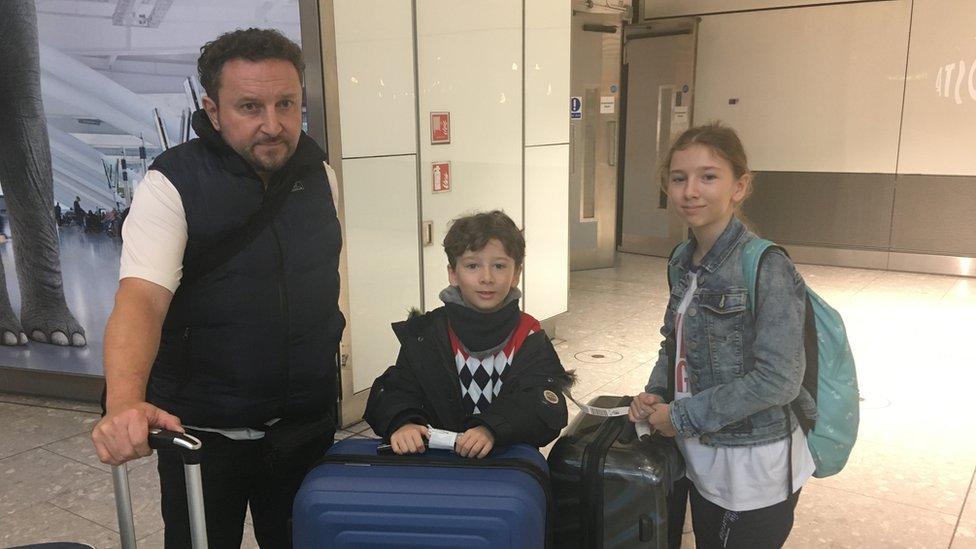
- Published5 July 2022

- Published29 January 2020
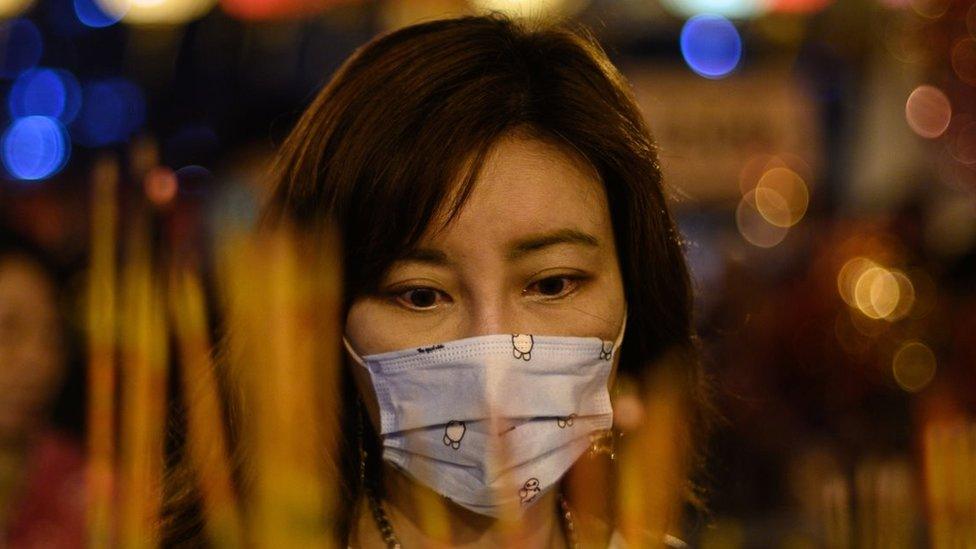
- Published28 January 2020
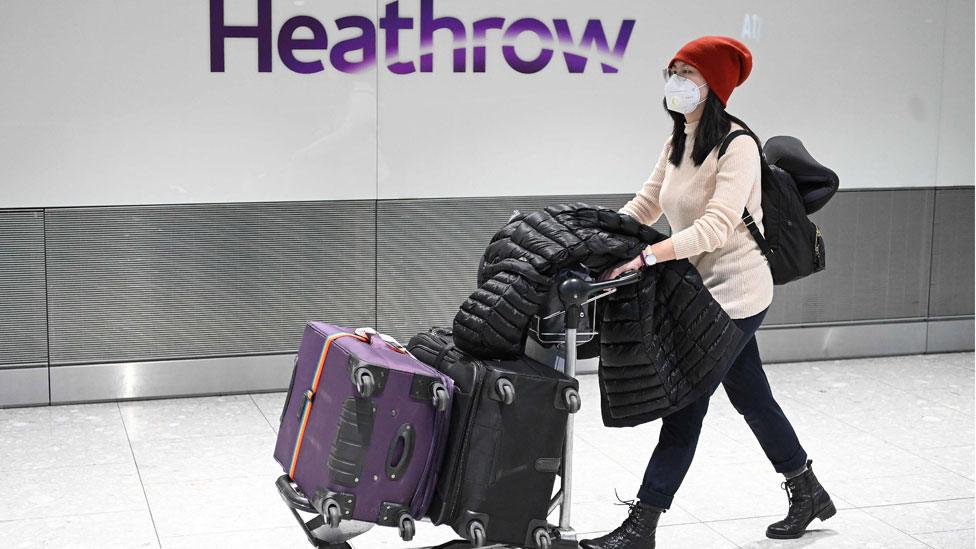
- Published28 January 2020
